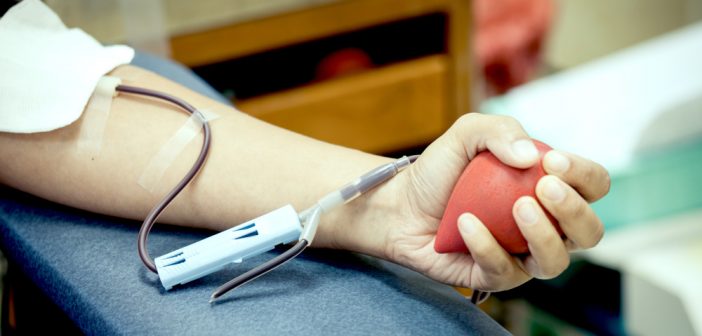Someone in the United States needs blood every two seconds for a variety of reasons, including sickle cell or cancer treatments, surgeries and accidents. It is up to donors to provide blood for patients in need because there is no artificial alternative available.
If you are one of the 6.8 million people who donate blood every year, you can feel good knowing that you may be saving up to three lives each time. While the biggest benefit from blood donation is the lifesaving service it provides for others, donors can enjoy some health benefits as well.
Here are a few of the ways you might be able to boost your health by donating blood:
Lower cancer risk
Researchers have studied the effects of having extra iron in the blood, and some have found that excess iron could be associated with a higher risk of cancer. When you give blood, you naturally get rid of some of your iron as well. Keeping iron levels balanced could lower your risk of getting cancer. One study found that people whose iron levels were reduced by removing blood were at lower cancer risk.
Reduced heart attack chances
Giving blood can also help you avoid having a heart attack, and it’s not just due to the time you spend relaxing while your blood is drawn. High levels of iron in the body have also been linked to a higher risk of having a heart attack. So, lowering your iron levels can keep your heart a little healthier. In one study of about 2,800 men, researchers found that those who donated blood had an 88 percent lower chance of having a heart attack compared to people who didn’t give blood.
Free checkup
Donating blood gives you a chance to get a free checkup. When you go to give blood, you’ll start off by getting a short health exam to make sure you are able to donate. You’ll have your temperature taken, and your blood pressure and heart rate will be measured. A blood sample also will be used to determine whether your hemoglobin levels are high enough. It only takes a few minutes, but this checkup can provide some good insight into your overall health.
“You shouldn’t rely on screenings done during blood donations to catch serious health issues,” says Robert Gerken, administrator at Newport Nursing and Rehabilitation Center. “However, these screenings can be a good resource between checkups to help you keep an eye on important measurements and see your doctor if anything is amiss.”
Lower blood pressure
Giving blood can lower your blood pressure, and your results may improve even more if you donate regularly. Researchers found that people with high blood pressure had a significant reduction in both systolic and diastolic blood pressure levels after donating blood four times. Individuals with severe high blood pressure of at least 160/100 had the biggest reduction, dropping about 17 points in systolic pressure and 11 points in diastolic.
The most important reason to give blood is to save lives, but you may be able to enjoy some personal benefits from this service as well. Take the time to find out if you can give blood and give someone the gift of life.
A version of this article was published by The Daily Herald. It has been republished here with permission.




